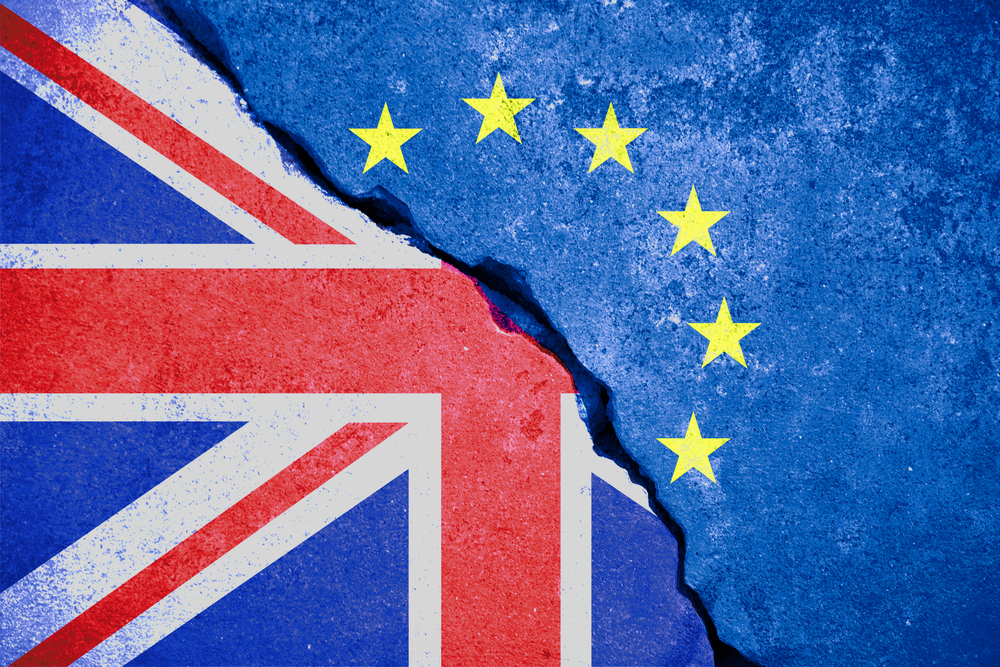A year on from the historic vote which saw Britain decide to leave the EU, Brexit negotiations are finally underway. Brexit Secretary David Davis has declared Britain is seeking a “deal like no other in history” as divorce talks with the EU begin that will shape UK growth and prosperity for a generation. Top of the agenda in […]
 A year on from the historic vote which saw Britain decide to leave the EU, Brexit negotiations are finally underway.
A year on from the historic vote which saw Britain decide to leave the EU, Brexit negotiations are finally underway.
Brexit Secretary David Davis has declared Britain is seeking a “deal like no other in history” as divorce talks with the EU begin that will shape UK growth and prosperity for a generation.
Top of the agenda in discussions between Davis and the EU’s chief negotiator Michel Barnier will be the future of British expats in Europe.
We speak to Peter Esders, commercial director of overseas property lawyers Judicare Group, about the implications of Brexit for expat property owners.
What impact will a hard Brexit have on expat property owners?
Undoubtedly, expats within Europe are worried, as are Europeans living in the UK. At the moment, not knowing what the terms of Brexit are going to be the worry is more a fear of the unknown rather than it being based on any actual facts. The impact on existing property owners, whether from a hard or a soft Brexit is yet to be seen.
My personal feeling is that in many respects existing owners are unlikely to see much of a change in that their existing right to own property, travel to the country, live in the country and so on is likely to continue in some way. The actual mechanics of this may be different – for example, it may be necessary to obtain a visitor’s visa to visit their own property or something like that. But realistically, I cannot see a situation where things fundamentally change. The things that are more likely to cause issues for property owners are the things that will affect people living in Europe – the effect on healthcare provisions, taxation, pensions and the like.
What will be the impact on mortgages?
I doubt whether Brexit, whether in hard or soft form will have an effect on the ability of Brits to take out a mortgage. If a bank feels that the borrower can afford the mortgage and that the value of the property exceeds the amount being lend, then why would Brexit change anything?
The only impact that I can think of that would affect Brits taking out a mortgage abroad when buying a property is either a slightly more complicated method of checking credit and a more complicated method to chase people for non-payment across borders. However, I anticipate that in reality neither of these things will be affected by Brexit. More to the point when it comes to mortgages is which mortgage makes sense in terms of exchange rates and interest rates, which is a different question entirely
What will happen to people looking to buy a property abroad?
The exchange rate changed dramatically after the Brexit vote and this has meant that houses that are priced in euros instantly became more expensive to Brits if they are buying using sterling. However, to balance this up we must remember that in many areas of Europe – such as Spain – there are some incredible bargains to be had and it is still very much a buyer’s market. The savings on the price of the property and the expectation that they will increase at some point means that many people are simply accepting the exchange rate and buying anyway.
Other buyers are taking advantage of the lack of buyers for some properties to negotiate hard for further property reductions to offset the poor exchange rate. This is particularly the case when buying from other Brits as they will be getting a better exchange rate at the moment when converting back from Euros to sterling – in fact some may sell their property at a loss but may still make money on the exchange rate.
Will it be more difficult for people to move abroad?
We have certainly seen an increase in the number of people wanting to buy property in Europe and trying to move to Europe at the moment in anticipation of things becoming more difficult in the future. People are taking the view that it is likely that those who have already done this are likely to have their rights protected and that if it does become more difficult that is likely only to apply for people doing this after Brexit comes into play.
Undoubtedly it will become more difficult to move abroad to Europe. European countries are not going to make it easy for us to move to their country unless we have a two way free movement of people and this was a crucial battleground in the Brexit Referendum. My person feeling is that it will become more difficult but that the difficulties will not be unsurmountable.
Is life going to get more difficult for expats?
That, to me is the most important question. As an expat living in Europe at the moment you have the right to travel freely, to receive healthcare, to work, to set up a business, to receive your pension directly in the country that you live in and so on. When Brexit becomes a reality this may change.
How this will change and who the changes will apply to is yet to be seen. What will the changes be? Will Brits have to take out private medical insurance? Will they be entitled to work in that country? Will they be entitled to receive their pension paid directly to that country and will this increase over time or remain static?
We have already seen expats heading back to the UK, but this is as a result of another factor – the exchange rate. The simple fact is that if your income – whether it be a pension or otherwise – is in Sterling you money now doesn’t go as far as it used to in Europe and therefore many pensioners living in Europe are struggling. Ironically many of these people moved to Europe due to the lower cost of living.
Is the government doing enough for expat property owners?
The Prime Minister is under pressure to guarantee the rights of Europeans living in the UK. This has been widely reported and in fact the white paper issued at the beginning of February stated that the government wants to secure the rights of EU citizens already living in the UK. Equally the white paper stated that the government also wanted to secure the rights of UK Nationals who are already living in other member states. Assuming that that happens this is a good start but this is going to be difficult to do.
The rights of those UK nationals range from the right to own property, to live in the country, to start a business, to travel freely within Europe, taxation, healthcare, pensions and so on. That is ignoring the day to day legal practicalities such as the enforcement of judgements cross border, inheritance and will issues.
To protect all of these rights, whilst keeping those who voted for Brexit happy is going to be almost impossible. Could we end up with a two-tier residence where people who have already moved to Europe have their rights broadly speaking protected and then anybody moving to the EU after a certain date having fewer rights?
[box style=”4″]
What Mortgage has teamed up with London & Country to offer you expert advice on the right mortgage deal.
Whether you’re buying a new home, remortgaging to a new deal or buying an investment property, L&C can help – and you’ll pay no fee for their advice. To find out more, click here.
[/box]














